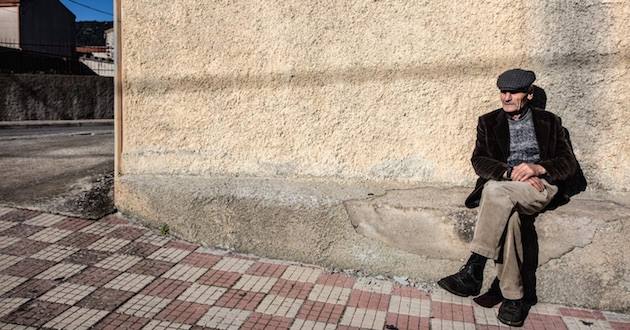We hear often of the breakdown of families. What about the rebuilding?
Recently I’ve been reading a book by Dan Buettner called The Blue Zones: 9 Lessons for Living Longer from the People Who Have Lived the Longest. It’s a fascinating read. It’s about Buettner’s study of those regions of the world that have produced the most centenarians — 100-year-olds.
I was struck by his chapter on the Sardinians. Sardinia is an island west of Italy in the Mediterranean Sea. To live there is like a throwback to another era. Men still tend to serve as shepherds, walking as much as five to six miles each day. Their lifestyle is simple. Their diet is simple — bread, cheese, vegetables, occasionally some meat.
They value laughter and community. They allow time in their afternoons for a gathering of neighbors, a glass of wine and storytelling. As you can imagine, the shared stories lead to shared laughter.
But there was something else that caught my eye. As a society, they value the aged. The aged are viewed as repositories of wisdom. Grandparents have an active role in the family. They participate in the education and training of grandchildren. They are the storytellers to the next generation. In some cases, they live with their children, and as a result they receive better care for themselves in turn.
READ: How one believer changed a city
But how can families impart wisdom to future generations? While I’m not suggesting that this seemingly idyllic way of the life of the Sardinians is for everyone, there are some lessons that are worthy of consideration.
- The value of the aged. In our fast-paced society, perhaps we can slow down and acknowledge the beauty and grace that comes with being elderly. It takes a certain kind of life to make it that long — discipline, moderation and gratitude.
- The wisdom of the aged. What a wonderful thing to gather our children around us and to take time to listen to the lessons the aged have learned. The elderly have the context of a time gone by, along with appreciation of the present. That wisdom is to be valued and not simply dismissed by the pace of the present.
- The storytelling of the aged. The best lessons come in stories. There’s much of our present world built upon artificial lessons delivered from the stage or from behind the lectern. But there’s tremendous power from those who have fought the battles, survived the droughts and learned the hardest life lessons.
- The community of family and the power of laughter. The Sardinians teach us something about the value of gathering as family, and the joy that laughter brings. That laughter extends not only to family but to our community. And it helps us live longer.
Think of it. The breakdown of our families might well be reversed — certainly not in one simple stroke — but as we begin to implement some of these simple lessons and changes in our mindset. Value the aged. Seek their stories. Allow for their teaching to enter our lives and the lives of our children. And celebrate the pain and the joy together — with much laughter.
I’m convinced that focusing on family legacy will not only allow us to live long and healthy lives but also for our society to persevere and thrive.
– Bill High practiced law for 12 years before becoming the CEO of the The Signatry. As CEO, he has spent over 18 years helping families live simply and give generously. He specializes in coaching families, individual givers, and financial advisers regarding biblical generosity & family legacy. He and his wife Brooke have four children and three grandchildren. He can be found at billhigh.com.
You can read more about impacting generations through the helpful guide, 7 Keys to Family Legacy.
As an Amazon Affiliate Metro Voice often includes links to resources, such as books. By learning more about these resources you help the mission of Metro Voice to provide quality news and information.









